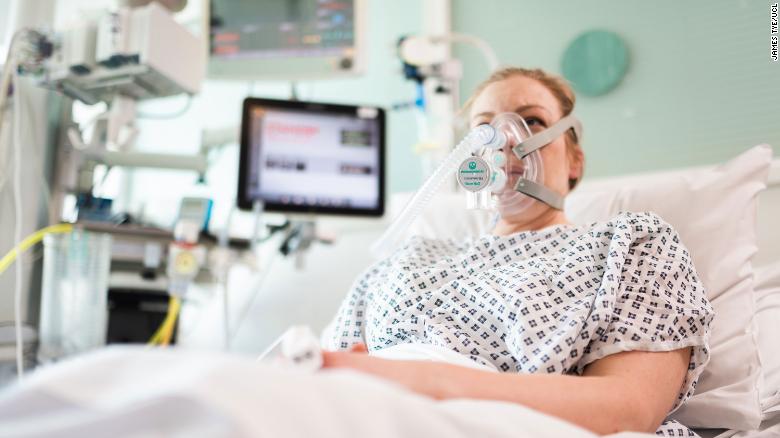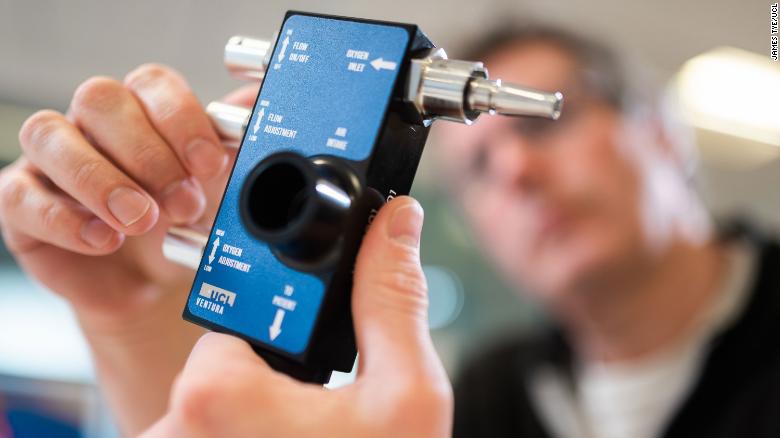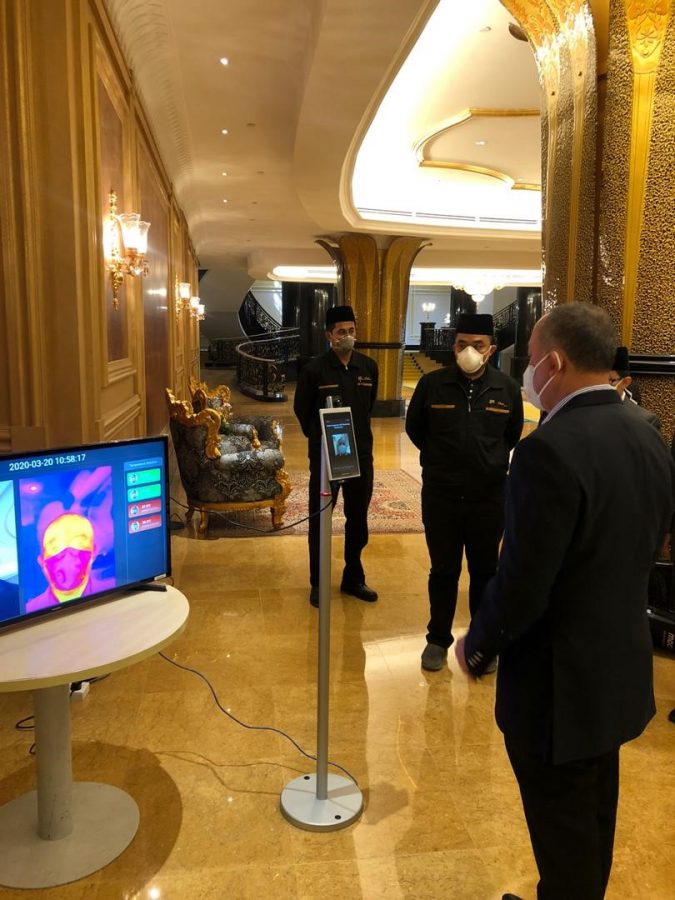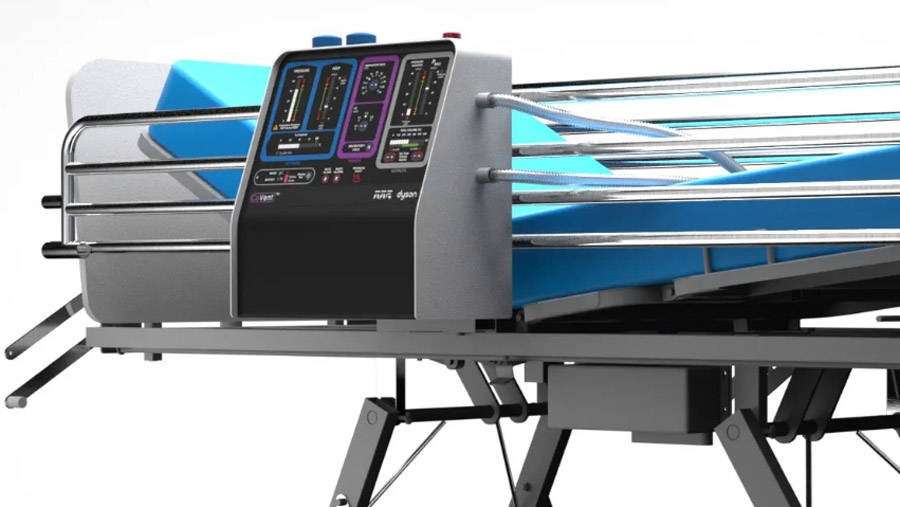In the global fight against the coronavirus pandemic, a lot of old-school approaches are yielding positive results, none more basic than good, thorough hand washing with soap and water. But plenty of companies are looking to modern, high-tech answers, as well, and some of these are already showing great promise.
Chances are you either love or covet one or more of Dyson’s high-tech products – a sleek fan, a futuristic air purifier, a handheld tornado of a vacuum cleaner, or the world’s priciest hair dryer. But now, Sir James Dyson, the British-born sultan of suction has a new project: Dyson CoVent ventilators.
A Shift in Priorities
That’s right. Dyson has quickly gone from building expensive household gadgets that nobody needs (but admittedly that plenty of people want) to lifesaving medical devices that are genuinely in urgent need around the world. Following a call from the UK’s most famous coronavirus patient, PM Boris Johnson, Dyson is preparing to build 15,000 ventilators. The new device can be manufactured quickly, efficiently, and at easily scaled-up volume, according to an internal email sent by Mr Dyson to the company’s staff.
The email went on to say of the CoVent ventilator: “It is designed to address the specific clinical needs of Covid-19 patients, and it is suited to a variety of clinical settings. The core challenge was how to design and deliver a new, sophisticated medical product in volume and in an extremely short space of time. The race is now on to get it into production.”

Dyson has used its extensive background in motor and air purifier technologies to design and manufacture the new ventilator. CoVent features the Dyson digital motor, which is designed with a high level of inherent safety. The ventilator also delivers a high-quality air supply, drawing on Dyson’s air purifier expertise.
The ventilators must be tested and approved by the UK’s regulatory authorities before it enters wide-scale production. Dyson will supply 10,000 ventilators to the UK National Health Service (NHS), while 5,000 units are expected to be donated to various countries.
As a blistering, tongue-in-cheek Gizmodo UK article noted, it may be time for people to reappraise the usefulness of Dyson, saying “emerging as a hero amid the coronavirus war, tax-dodging overseas hypocritical empire Dyson is riding to the rescue of our doomed population with 10,000 homebrew ventilators.” The article offered a conditional mea culpa, as well: “We’ll take everything back, Sir James, when your machine is doing the breathing for us in three weeks’ time.”
From Engines to Emergency Rooms
Perhaps even more impressive, the teams at F1 Mercedes – the folks who build Formula One racing engines for Team Mercedes – developed a breathing assist unit for Covid-19 patients, and did so in less than 100 hours.
Called the Continuous Positive Airway Pressure (CPAP) device, the breathing aid was re-engineered from an existing machine and has been recommended for use by the UK Medicines and Healthcare products Regulatory Agency, according to a statement from University College London (UCL), which worked on the project.

These CPAP devices have already been used in hospitals in China and Italy to treat coronavirus patients, with reports showing that roughly half of such patients have avoided the need for ventilators, according to the statement. With most countries around the world facing a severe shortage of ventilators, a device like CPAP will quite literally mean the difference between life and death for scores of patients.
These machines help to keep the patient’s airway open and increase the amount of oxygen entering the lungs by pushing air and oxygen into the mouth and nose at a continuous rate. According to a recently released statement, 100 of the new devices will be used in clinical trials, with subsequent “rapid rollout to hospitals around the country ahead of the predicted surge in Covid-19 hospital admissions.”

Following the necessary clinical trials, Mercedes and other F1 teams could produce up to 1,000 of the devices per day.
Rise of the Machines
And it’s not just innovative hardware solutions being drawn upon in the fight against the coronavirus pandemic. Increasingly, governments and other stakeholders are looking to artificial intelligence (AI) to bolster their efforts. In fact, AI is currently being used for everything from identifying, tracking and forecasting outbreaks; testing and diagnostics to delivery of medical supplies, curbing fake news, developing drugs, and research in finding a vaccine.
China-based SenseTime, together with its Malaysia-based sole partner, G3 Global Berhad, recently rolled out AI-enhanced technology through two new products – the SenseTime Nebula-ITMDT and the SenseTime Thunder-E Thermal Imaging Solutions, useful tools in the pandemic fight.

The technology incorporates thermal imaging cameras to help identify individuals with elevated body temperatures and sends pop-up alerts of any possible flags. SenseTime’s technology also incorporates a mask algorithm which works in two ways. First, the technology can detect individuals who are not wearing masks in public places. Meanwhile, with regards to access control to buildings and premises, the technology also incorporates facial recognition – even while they are wearing masks – with a high degree of accuracy.
What this essentially means is that users of these systems are provided with a full range of epidemic prevention information such as body temperature, mask wearing status, and identity recognition. More importantly, however, the contactless technology offers an edge over conventional handheld scanners which have fewer features and lower accuracy rates, as well as an increased risk of physical contact.
Countries around the world are working with corporations, start-ups, and even individuals to battle back against the defining global event of our time. And many are discovering the truth behind the old idiom, “Necessity is the mother of invention.”
"ExpatGo welcomes and encourages comments, input, and divergent opinions. However, we kindly request that you use suitable language in your comments, and refrain from any sort of personal attack, hate speech, or disparaging rhetoric. Comments not in line with this are subject to removal from the site. "





















